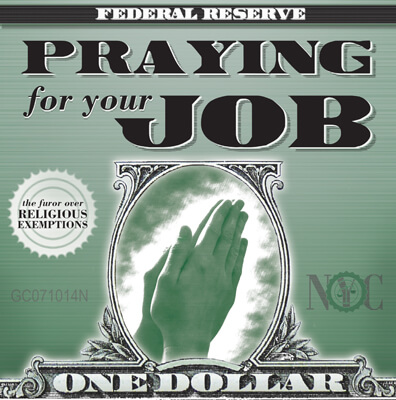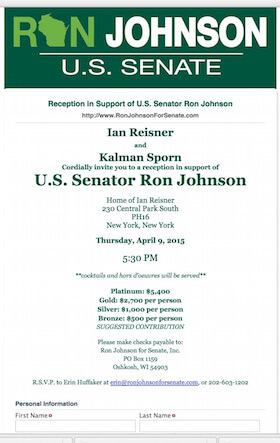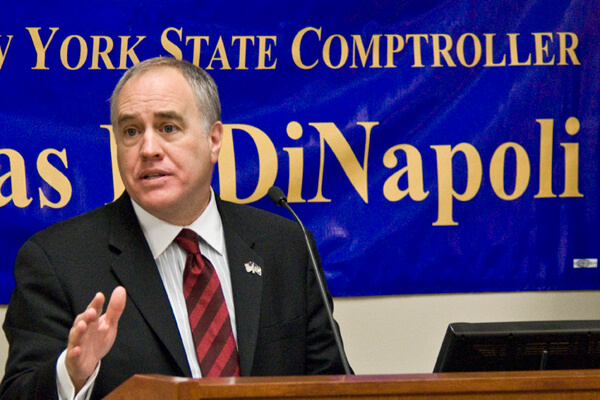Chad Griffin. | HRC
BY PAUL SCHINDLER | In a stunning about-face, the Human Rights Campaign, the chief LGBT lobbying group pushing the federal Employment Non-Discrimination Act on Capitol Hill, announced on July 9 that it would seek “a narrowed religious exemption” compared to the one contained in the version of the bill approved by the Senate last year. Since it is doubtful ENDA will get a vote in the Republican-led House this year, the bill’s rewriting will likely happen early next year, as the new Congress convenes.
Perhaps as significantly, HRC announced support for “a fully comprehensive LGBT civil rights bill. A bill that, at long last, would bar discrimination on the basis of sexual orientation and gender identity in all core civil rights categories —including housing, public accommodations, credit, education and, if ENDA fails to pass, in employment.”
Suggesting the group may embrace the longstanding demands of some activists that the community push for specifically amending the 1964 Civil Rights Act, HRC president Chad Griffin, in a statement simultaneously posted on the group’s blog and at Buzzfeed.com, said a comprehensive approach “is a visionary idea that Congresswoman Bella Abzug brought to Congress in 1974. Its time has come.”
HRC’s move comes a day after a wide array of leading LGBT groups pulled their support for ENDA in its current form and barely a week after the Supreme Court’s controversial decision in the Hobby Lobby-Affordable Health Care Act case. That ruling, on June 30, crystalized concerns on the left about religious exemptions in civil law (see Arthur S. Leonard’s story above).
HRC and the other advocacy groups undoubtedly timed their statements, as well, to put pressure on the Obama administration as it finalizes its executive order barring sexual orientation and gender identity discrimination by private sector contractors doing business with the federal government.
In separate statements on July 8, the National Gay and Lesbian Task Force (NGLTF), a group of legal advocacy groups — including the American Civil Liberties Union, the Gay & Lesbian Advocates & Defenders, Lambda Legal, the National Center for Lesbian Rights, and the Transgender Law Center — and Pride at Work, an LGBT affiliate of the AFL-CIO, all announced they would no longer support the version of ENDA the Senate has approved.
“The morning after the Supreme Court’s Hobby Lobby ruling, we all woke up in a changed and intensified landscape of broad religious exemptions being used as an excuse to discriminate,” Rea Carey, NGLTF’s executive director, said in a written statement. “We are deeply concerned that ENDA’s broad exemption will be used as a similar license to discriminate across the country.”
ILLUSTRATION BY MICHAEL SHIREY
The five legal groups, in their statement, wrote, “Given the types of workplace discrimination we see increasingly against LGBT people, together with the calls for greater permission to discriminate on religious grounds that followed immediately upon the Supreme Court’s decision last week in Burwell v. Hobby Lobby, it has become clear that the inclusion of this provision is no longer tenable.”
The objectionable language, the legal advocates said, “could provide religiously affiliated organizations — including hospitals, nursing homes, and universities — a blank check to engage in workplace discrimination against LGBT people.” Since at least some anti-LGBT discrimination — that shown to be based on gender stereotyping — has already been successfully challenged under the existing federal ban on sex discrimination, the advocacy groups maintained that enacting ENDA in its current form “actually might lessen non-discrimination protections now provided for LGBT people by Title VII of the Civil Rights Act of 1964 and very likely would generate confusion rather than clarity in federal law.”
HRC’s Griffin did not mention the Hobby Lobby ruling, instead focusing on the opportunities the LGBT community has to achieve more than it could in the past: “In the year and a half since the current version of ENDA was introduced, we have significantly moved the needle on Congressional support for LGBT equality… [we] can’t ignore that somewhere in between the introduction of this version of ENDA and today, a revolution has happened in the fight for LGBT equality. We’re at one of those moments you read about in the history books, and it turns up everywhere you look.”
Faith-based organizations and Christian right leaders are pressuring the administration to incorporate broad religious exemptions into the Obama executive order, and now LGBT groups are signaling they are not ready to give up that battle.







































